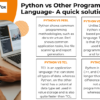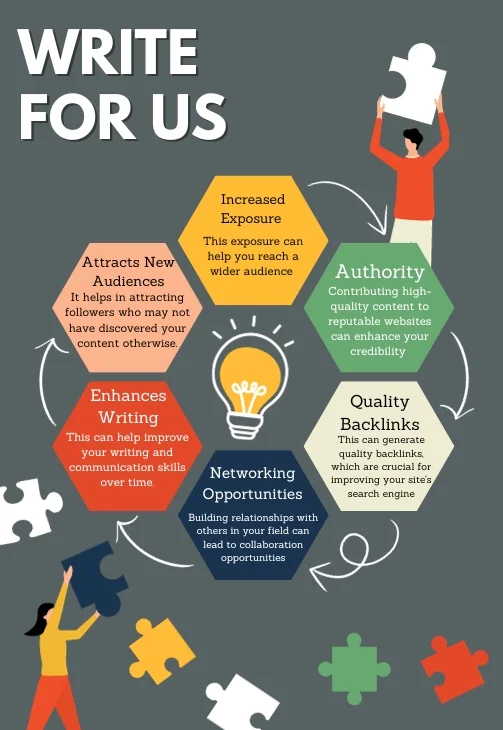Quality Management ISO 9001 Lead Auditor Training
In today’s competitive business landscape, organizations are increasingly recognizing the importance of a robust quality management system (QMS). This is where the ISO 9001:2015 standard comes in, offering a globally recognized framework for implementing effective quality practices. As a result, the demand for skilled professionals who can audit and ensure compliance with this standard is witnessing significant growth.
Among these professionals, ISO 9001 lead auditors play a crucial role in evaluating and verifying that organizations’ QMSs meet the defined requirements. Their expertise ensures continuous improvement, leading to enhanced operational efficiency, customer satisfaction, and overall organizational success.
Becoming a certified ISO 9001 lead auditor unlocks a world of exciting career opportunities. You can expect substantial salary increases, increased job security, and the chance to work in diverse industries across the globe. Additionally, contributing to improved quality standards across various organizations brings a deep sense of fulfillment and career satisfaction.
IRCA (International Register of Certified Auditors) certification serves as the gold standard for ISO 9001 lead auditors. It demonstrates your competence and expertise in conducting audits and adds immense value to your professional profile.
However, traditional classroom training for lead auditor certification may not always be a viable option for busy professionals. Recognizing this need, online training programs have emerged as a convenient and flexible alternative. These programs offer the same comprehensive curriculum and rigorous learning experience, but at your own pace and schedule.
In this blog, we’ll delve deeper into the world of the ISO 9001 lead auditor training course (irca certified) online, exploring the following key areas:
- Understanding ISO 9001:2015: Gain a thorough understanding of the standard’s principles, requirements, and benefits.
- The Role of an ISO 9001 Lead Auditor: Discover the responsibilities, duties, and essential skills required for effective auditing.
- IRCA Certification: Enhancing Your Credibility: Explore the significance of IRCA certification and its impact on your career prospects.
- Exploring Online ISO 9001 Lead Auditor Training: Understand the advantages of online training and learn how to choose the right program.
- Career Opportunities for Certified Lead Auditors: Uncover diverse career paths and the potential for professional growth in this field.
By the end of this blog, you will have a comprehensive understanding of the ISO 9001 lead auditor role and the value of online training in achieving your career goals. Let’s embark on this journey together and explore the exciting opportunities that await you in the world of quality management.
Understanding ISO 9001:2015: The Foundation for Quality Management
The International Organization for Standardization (ISO) developed the ISO 9001:2015 standard as a globally recognized framework for implementing and maintaining a robust Quality Management System (QMS). Understanding its core principles and requirements is crucial for aspiring ISO 9001 lead auditors.
Customer Focus: This principle emphasizes prioritizing customer needs and expectations to ensure their satisfaction and loyalty.
Leadership: Leaders play a vital role in establishing a quality culture and promoting continuous improvement within the organization.
Engagement of People: Recognizing and engaging employees at all levels is crucial for harnessing their full potential and achieving organizational goals.
Process Approach: Viewing work as a series of interrelated processes allows for consistent control and improvement.
Improvement: Continuous improvement through iterative cycles is essential for organizational success.
Evidence-Based Decision Making: Data-driven decisions ensure effective resource allocation and strategic management.
Relationship Management: Building strong relationships with suppliers, partners, and other stakeholders contributes to overall organizational performance.
Plan-Do-Check-Act (PDCA) Cycle:
The PDCA cycle serves as the foundational framework for implementing ISO 9001:2015. It involves:
- Plan: Define objectives, identify resources, and establish processes to achieve desired outcomes.
- Do: Implement the planned activities and processes.
- Check: Monitor and measure performance against established objectives.
- Act: Take corrective actions based on performance data and continuously improve the QMS.
Seven Key Clauses of ISO 9001:2015:
Each clause outlines specific requirements for implementing a comprehensive QMS:
Context of the organization: Define the organization’s internal and external environment, including stakeholders and their needs.
Leadership: Leaders must demonstrate commitment to the QMS and provide necessary resources.
Planning: Develop and implement a quality management plan.
Support: Establish and maintain a supportive environment for the QMS.
Operation: Control processes to ensure consistent product and service quality.
Performance Evaluation: Monitor and measure key performance indicators to identify areas for improvement.
Improvement: Continuously improve the QMS through corrective and preventative actions.
Benefits of Implementing ISO 9001:2015:
- Enhanced product and service quality: Reduced errors, increased customer satisfaction, and improved brand reputation.
- Reduced costs: Increased efficiency, improved resource allocation, and minimized waste.
- Improved decision making: Data-driven approach leads to better strategic decisions and risk management.
- Increased competitive advantage: Demonstrate commitment to quality and gain access to new markets.
- Enhanced employee engagement: Increased motivation and ownership of quality improvement initiatives.
Real-World Examples:
- Ford Motor Company: Implemented ISO 9001:2015 to improve production efficiency and product quality, resulting in significant cost savings and enhanced customer satisfaction.
- Johnson & Johnson: Utilized the standard to ensure consistent quality across its global operations, leading to improved patient safety and market leadership in the healthcare industry.
- Rolls-Royce: Leveraged the QMS framework to ensure stringent safety standards in aircraft engine production, solidifying its reputation for reliability and excellence in aerospace engineering.
These examples demonstrate how organizations across various industries leverage ISO 9001:2015 to achieve tangible benefits and enhance their overall performance. As an ISO 9001 lead auditor, you’ll play a critical role in guiding organizations on their journey to continuous improvement and quality excellence.
The Role of an ISO 9001 Lead Auditor: Championing Quality and Compliance
As an ISO 9001 lead auditor, you assume a critical role in ensuring organizational compliance with the internationally recognized quality management system (QMS) standard. Your expertise and diligence contribute to the continuous improvement of processes, products, and services, ultimately leading to organizational success.
Responsibilities and Duties:
- Planning and Conducting Audits: Develop and execute audit plans, gather evidence, and analyze findings to assess the effectiveness of the organization’s QMS against ISO 9001:2015 requirements.
- Reporting and Recommendations: Prepare comprehensive audit reports summarizing findings, identifying non-conformities, and recommending corrective actions for improvement.
- Follow-up and Verification: Ensure the implementation and effectiveness of corrective actions taken by the organization in response to non-conformities identified during the audit.
- Maintaining Knowledge and Skills: Continuously update your knowledge of ISO 9001:2015 standards, audit methodologies, and best practices.
- Maintaining Professional Standards: Uphold the highest ethical standards and conduct audits with integrity, objectivity, and professionalism.
Types of Audits:
- First-party audits: Conducted by the organization itself to internally assess compliance with the QMS.
- Second-party audits: Performed by a supplier or customer to evaluate the quality management practices of their partner organization.
- Third-party audits: Conducted by an independent certification body to verify an organization’s compliance with ISO 9001:2015 requirements and issue certification upon successful completion.
Required Skills and Knowledge:
- Technical Expertise: Thorough understanding of ISO 9001:2015 requirements, audit methodologies, and quality management principles.
- Analytical and Problem-Solving Skills: Ability to analyze complex information, identify non-conformities, and recommend effective corrective actions.
- Communication and Interpersonal Skills: Effectively communicate audit findings, recommendations, and technical information to stakeholders at all levels.
- Organization and Planning Skills: Plan and manage audit schedules, timeframes, and resources efficiently.
- Leadership and Teamwork Skills: Lead and guide audit teams, delegate tasks effectively, and collaborate with other stakeholders.
Ethical Conduct and Professional Standards:
Maintaining the highest ethical standards is paramount for any ISO 9001 lead auditor. This includes:
- Adhering to relevant ethical codes and professional standards.
- Maintaining objectivity and impartiality throughout the audit process.
- Confidentiality and data protection: Ensuring the confidentiality of sensitive information obtained during the audit.
- Avoiding conflicts of interest and disclosing any potential conflicts upfront.
- Conducting audits with integrity, honesty, and fairness.
As an ISO 9001 lead auditor, you play a pivotal role in promoting quality and compliance within organizations. By upholding ethical standards, possessing the necessary skills and knowledge, and diligently performing your duties, you contribute significantly to building a better, more efficient, and quality-driven world.
IRCA Certification: Your Key to Global Recognition and Career Advancement
In the competitive world of ISO 9001 lead auditing, IRCA certification stands as the pinnacle of professional achievement. Established by the International Register of Certified Auditors, this prestigious credential signifies your expertise, competence, and commitment to upholding the highest standards in quality management.
The Importance of ISO 9001 lead auditor training course (irca certified) online:
- Increased Credibility and Recognition: IRCA certification distinguishes you from other lead auditors, demonstrating your adherence to rigorous standards and internationally recognized best practices.
- Enhanced Employability: Organizations seeking qualified lead auditors actively seek IRCA certification, giving you a significant competitive edge in the job market.
- Higher Earning Potential: IRCA-certified lead auditors often command higher salaries and are eligible for premium projects and opportunities.
- Global Recognition and Mobility: IRCA certification is recognized worldwide, opening doors to international career opportunities and assignments.
- Continuous Professional Development: IRCA membership provides access to exclusive resources and training opportunities, ensuring you stay updated on the latest industry developments.
Requirements and Application Process:
To achieve IRCA certification, candidates must:
- Successfully complete an IRCA Certified Training Course from an accredited provider.
- Possess relevant experience in auditing or quality management.
- Pass an IRCA-administered examination demonstrating their knowledge of ISO 9001:2015 and auditing principles.
- Uphold IRCA’s Code of Conduct and maintain ethical standards throughout their professional practice.
The application process involves submitting documentation and completing the prescribed examination. Upon successful completion, individuals are awarded IRCA certification, which remains valid for five years, requiring ongoing professional development activities to maintain.
Success Stories:
Numerous success stories showcase the impact of IRCA certification on career trajectories. Many individuals have leveraged this credential to land senior positions in leading organizations across diverse industries. They credit IRCA for their professional growth, increased confidence in their auditing skills, and enhanced ability to command respect and trust from clients.
Investing in IRCA certification is an investment in your career advancement. It equips you with the knowledge, skills, and reputation to thrive in the ever-evolving world of quality management. By demonstrating your commitment to excellence and upholding the highest professional standards, you open doors to exciting opportunities and establish yourself as a leader in the field.
Exploring Online ISO 9001 Lead Auditor Training: Flexibility and Convenience at Your Fingertips
For busy professionals seeking to become ISO 9001 lead auditors, online training offers a flexible and convenient alternative to traditional classroom programs. This innovative approach allows you to learn at your own pace and schedule, without sacrificing the quality of the educational experience.
Advantages of Online Training:
- Flexibility: Learn from anywhere, anytime, around your existing commitments.
- Self-paced learning: Adapt the learning speed to your individual needs and preferences.
- Cost-effective: Avoid travel expenses and potentially save on course fees compared to classroom programs.
- Interactive learning: Engage with multimedia content, quizzes, and simulations to actively retain information.
- Accessibility: Access course materials and recordings 24/7 for convenient review and reinforcement.
Features and Functionalities:
- Comprehensive curriculum: Covers all aspects of ISO 9001:2015 requirements and auditing methodologies.
- Interactive study materials: Videos, animations, case studies, and e-learning modules for engaging learning.
- Self-assessment quizzes: Evaluate your understanding and track your progress throughout the course.
- Discussion forums: Connect with fellow learners and instructors to share experiences and ask questions.
- Online resources: Access additional materials, including templates, checklists, and industry best practices.
Online vs. Classroom Training: A Comparison:
| Feature | Online Training | Classroom Training |
| Flexibility | High | Low |
| Self-paced learning | High | Low |
| Cost | Lower | Higher |
| Interactive learning | Moderate | High |
| Accessibility | High | Low |
| Networking opportunities | Limited | High |
| Personal interaction | Limited | High |
Choosing the Right Online Program:
- Accreditation: Ensure the program is accredited by a recognized body like IRCA.
- Curriculum: Check if the content covers all ISO 9001:2015 requirements and audit methodologies.
- Learning resources: Evaluate the variety and quality of online materials provided.
- Instructor support: Assess the availability of qualified instructors for guidance and support.
- Technology requirements: Ensure you have the necessary computer equipment and internet access.
Maximizing Your Learning Experience:
- Set a dedicated learning schedule.
- Create a distraction-free environment.
- Actively participate in online discussions and forums.
- Take advantage of self-assessment quizzes and practice exams.
- Schedule regular study sessions to review and reinforce key concepts.
By embracing the advantages of online training, you can efficiently acquire the knowledge and skills needed to become a successful ISO 9001 lead auditor. With a well-structured program and dedication to your learning, you can unlock exciting career opportunities and contribute to the continuous improvement of quality management practices within organizations.
Launching Your Career in Quality Management: Diverse Opportunities for IRCA-Certified Lead Auditors
Earning your IRCA certification as an ISO 9001 lead auditor opens doors to a world of exciting career possibilities. As organizations increasingly recognize the importance of quality management, the demand for qualified professionals like you continues to rise, offering a diverse range of paths to explore.
Career Paths:
- Independent Lead Auditor: Conduct audits for various organizations on a contract basis, offering flexibility and independence.
- Quality Management Consultant: Assist organizations in implementing and improving their QMS, offering valuable strategic guidance.
- Internal Auditor: Ensure quality standards are met within your organization, contributing to efficient operations and continuous improvement.
- Certification Body Auditor: Conduct audits for certification bodies, verifying compliance with international standards.
- Trainer and Educator: Share your expertise by developing and delivering training programs on ISO 9001:2015 and quality management principles.
Salary Ranges:
According to recent reports, average salaries for IRCA-certified lead auditors range from $80,000 to $120,000 annually, depending on experience, location, and specific industry. Additionally, independent consultants and senior positions can command even higher salaries.
Job Market Trends:
The global market for ISO 9001 certified organizations is projected to reach $62.5 billion by 2027, indicating continued growth and demand for qualified lead auditors. This trend is fueled by increased globalization, heightened customer expectations, and a growing emphasis on quality control across industries.
Real-World Examples:
- Maria Garcia, Lead Auditor: After years in manufacturing, Maria earned her IRCA certification and now conducts audits for a leading certification body. She enjoys the variety of clients and the opportunity to travel, while contributing to improved quality standards across diverse industries.
- David Smith, Quality Management Consultant: David leveraged his IRCA certification to become a consultant, helping organizations implement and optimize their QMS. He finds satisfaction in guiding organizations towards excellence and witnessing their positive transformations.
- Anna Lee, Trainer and Educator: Anna’s passion for quality led her to develop an online training program for aspiring lead auditors. She finds fulfillment in sharing her expertise and empowering individuals to pursue careers in quality management.
Resources and Guidance:
- IRCA website: Offers valuable resources, job listings, and professional development opportunities for IRCA-certified professionals.
- Quality Management Institute (QMI): Provides online courses, conferences, and networking events for quality professionals.
- ASQ (American Society for Quality): Offers certifications, training programs, and resources for quality management professionals.
By leveraging your IRCA certification, you not only equip yourself with in-demand skills but also join a community of passionate professionals dedicated to building a quality-driven world. Embrace your career journey, explore diverse opportunities, and contribute your expertise to achieving organizational excellence.
Conclusion: Embarking on Your Journey to Quality Excellence
Throughout this blog, we’ve explored the exciting world of ISO 9001 lead auditor training and the valuable opportunities it unlocks. By understanding the core principles of the QMS standard, mastering the role of a lead auditor, and achieving IRCA certification, you equip yourself with the knowledge, skills, and credibility to contribute significantly to organizational success and global quality improvement.
Key Takeaways:
- ISO 9001:2015 QMS is a globally recognized framework for implementing quality management systems, ensuring consistent product and service quality.
- ISO 9001 lead auditors play a critical role in evaluating and verifying compliance with the standard, promoting continuous improvement and organizational excellence.
- IRCA certification signifies your expertise and adherence to the highest ethical standards in lead auditing, enhancing your professional reputation and career prospects.
- Online training programs offer a flexible and convenient approach to acquiring the necessary knowledge and skills, allowing you to learn at your own pace and schedule.
- Diverse career opportunities await IRCA-certified lead auditors, offering fulfilling roles in various industries and rewarding salary ranges.









Can you be more specific about the content of your article? After reading it, I still have some doubts. Hope you can help me.